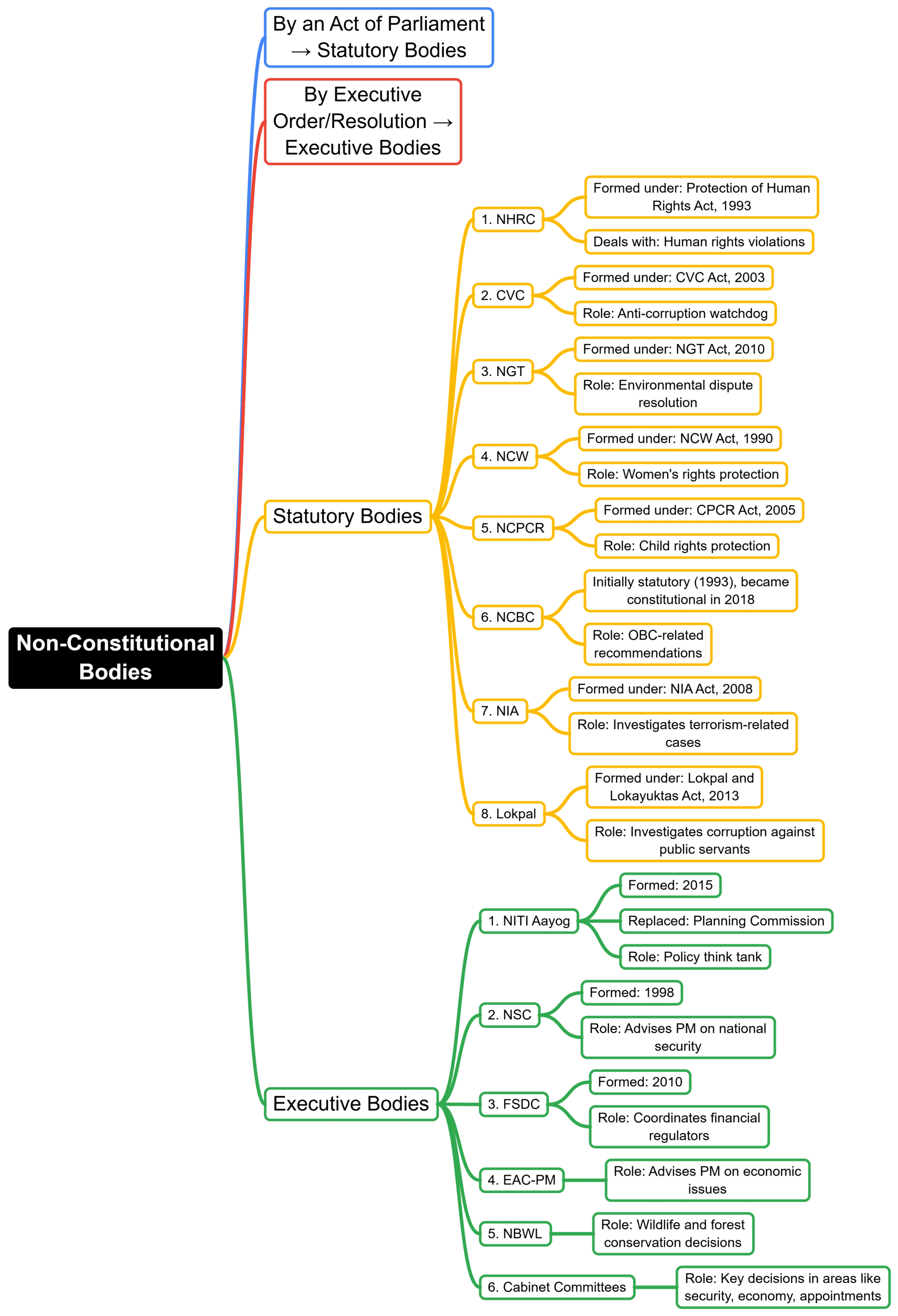UPSC Exam > UPSC Notes > Indian Polity for UPSC CSE > Mind Map: Non - Consitutional Bodies
Mind Map: Non - Consitutional Bodies | Indian Polity for UPSC CSE PDF Download

The document Mind Map: Non - Consitutional Bodies | Indian Polity for UPSC CSE is a part of the UPSC Course Indian Polity for UPSC CSE.
All you need of UPSC at this link: UPSC
|
154 videos|985 docs|260 tests
|
FAQs on Mind Map: Non - Consitutional Bodies - Indian Polity for UPSC CSE
| 1. What are non-constitutional bodies in India? |  |
Ans.Non-constitutional bodies in India are organizations or institutions that are not established by the Constitution of India. They play significant roles in governance and administration but do not have constitutional backing. Examples include the Planning Commission, National Development Council, and various regulatory authorities.
| 2. How do non-constitutional bodies differ from constitutional bodies? |  |
Ans.Non-constitutional bodies differ from constitutional bodies in terms of their establishment and authority. Constitutional bodies are created by the Constitution and have defined powers and responsibilities. In contrast, non-constitutional bodies are formed by acts of legislation or executive orders, and their functions can be modified or dissolved by the government.
| 3. What is the significance of non-constitutional bodies in the governance of India? |  |
Ans.Non-constitutional bodies are significant because they address specific needs in governance, policy-making, and implementation. They provide expertise, facilitate planning, and ensure coordination among various sectors. Their flexibility allows the government to respond to emerging challenges more effectively than rigid constitutional bodies.
| 4. Can you provide examples of prominent non-constitutional bodies in India? |  |
Ans.Some prominent non-constitutional bodies in India include the Planning Commission (now replaced by NITI Aayog), the National Development Council (NDC), the Reserve Bank of India (RBI), and the Securities and Exchange Board of India (SEBI). Each of these plays a crucial role in economic planning, regulation, and policy-making.
| 5. How do non-constitutional bodies impact policy formulation in India? |  |
Ans.Non-constitutional bodies impact policy formulation by providing research, data analysis, and expert recommendations. They often act as advisory bodies to the government, helping to shape policies based on current trends and needs. Their insights can lead to better-informed decisions and more effective governance strategies.
Related Searches
















